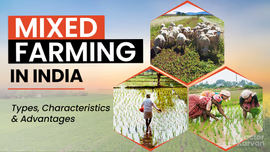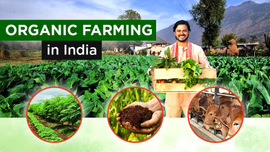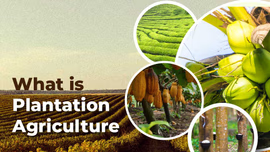Tea Plantation in India: India’s Cultural Heritage

Tea, often called “chai”, is integral to India’s culture and society. It is one of the popular beverages in India. Many tea varieties are grown in the country, with Darjeeling tea being the most popular. Read the complete blog to learn about the popular tea plantations, top tea-producing states, and government supports to promote tea production in India.
Table of Contents
- The Origin, Present Status & Exports of Tea in India
- Tea Plantations in India
- Which are the Top Tea Producing States in India?
- What are the Government Initiatives to Support Tea Production in India?
The Origin, Present Status & Exports of Tea in India
Tea is one of the most consumed beverages in India. Tea is not native to India, but it has become integral to Indian society and culture. The history of tea in India dates to the Britishers, who introduced tea plantations in India in Assam’s Brahmaputra Valley in the early 1800s from China on the recommendations of Sir Joseph Banks in 1776. The tea seedlings that were sown then created a vast tea empire by the time India attained independence in 1947.
Today, India is the second largest tea producer and the largest producer of black tea globally. India is a country in which 80% of the tea produced is consumed by the domestic population. As per the latest data from IBEF, the total area under tea cultivation stood at 6.19 lakh hectares, and the total tea production in 2024 stood at 1,382.03 million kgs. However, during FY25 (April-December) production stood at 1,186.62 million kgs.
India is among the top 5 tea exporters in the world making about 10% of the total exports. Assam, Darjeeling, and Nilgiri tea are considered the finest tea in the world. During FY24, India's total tea exports in quantity were 250.73 million kg which was worth US 776 million dollar. During the FY25 (April-December), quantity of India’s total tea exports stood at 187.14 million kg worth US 627.36 million dollar. The top tea-producing states in India are Assam, West Bengal, Kerala, Tamil Nadu and Karnataka.
Tea Plantations in India
Munnar, Darjeeling, Assam, etc. are some of the most popular tea plantations in India. Let’s have a look at all the popular tea plantations below.
Assam
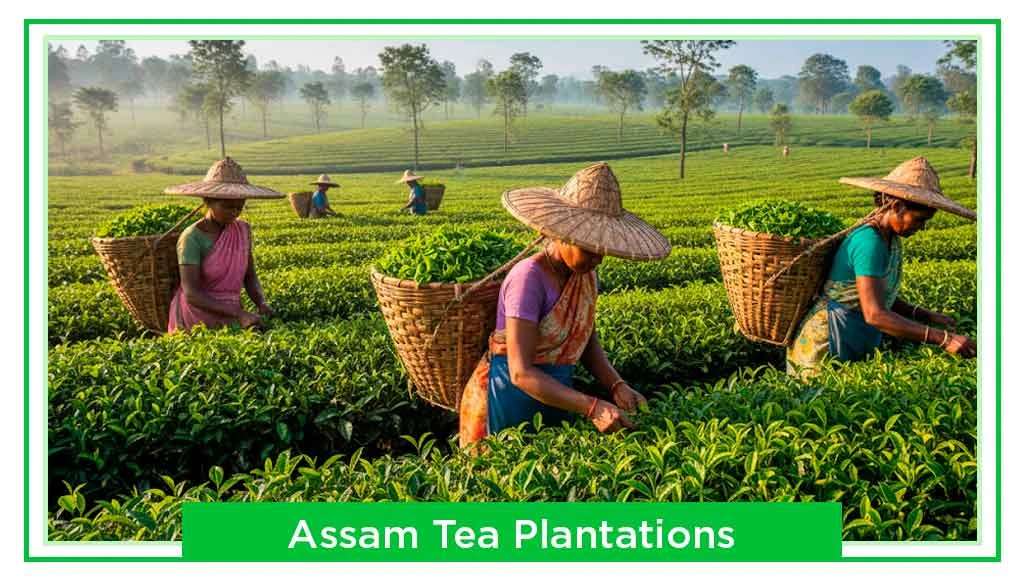
The largest tea-producing region in India, Assam has the lush green landscapes which gives a beautiful, serene environment to observe. The Assam tea has a rich, deep-amber colour and is famous for its strong and malty flavour. The tea grown at an elevation ranging from 45 to 60 metre above sea level. Jorhat and Dibrugarh are the most popular tea estates in Assam. Assam Orthodox Tea has a registered Geographical Indication (GI) tag by the tea board. Visitors get the beautiful view of the backdrop of Brahmaputra River and get experience from tea plucking to processing.
Darjeeling, West Bengal
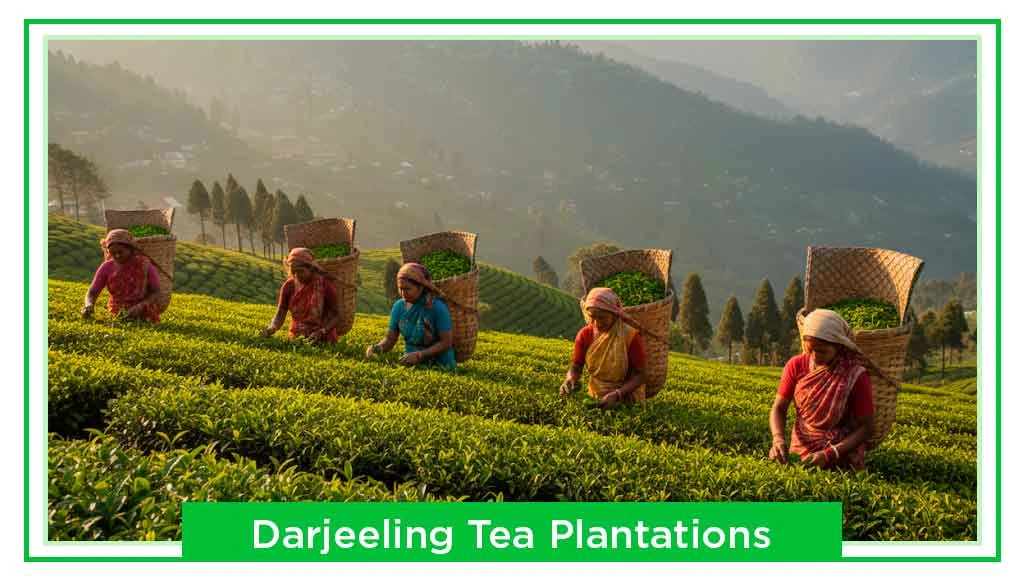
Darjeeling, often called as “Queen of the Hills” is a must-visit for tea enthusiasts and nature lovers as the region is surrounded by the sprawling tea gardens, including the famous Happy Valley Tea Estate. It has breathtaking views of Mount Kanchenjunga, and the rich history of tea-production and the iconic Darjeeling Himalayan Railway.
The tea here, are grown at elevations ranging from 600 to 2000 metre above sea level. About 10 million kilograms tea are grown every year, spread over 17,500 hectares of land. The Darjeeling tea is the most popular tea variety in the world. It was the first tea variety that was given Geographical Indications registration by the Tea Board of India.
Niligiri, Tamil Nadu
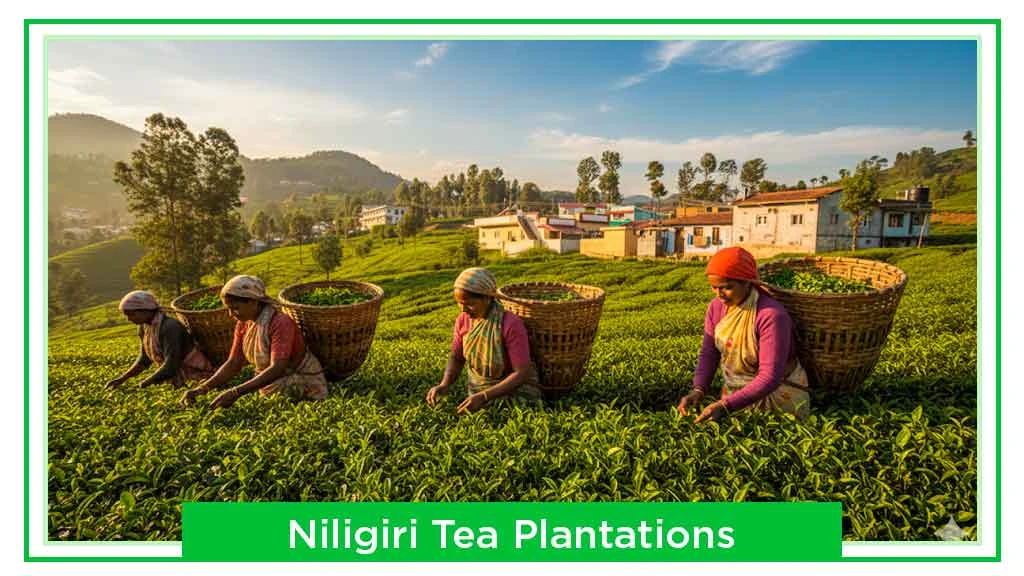
Niligiri hills are the famous mountains in South India, sprawling through the states of Tamil Nadu, Karnataka and Kerala. The cool breeze of this tea plantation and abundant rainfall contribute to the thriving tea estates, which are a heaven for nature lovers. Teas are grown at elevations ranging from 1000 to 2500 metre above sea level. The Nilgiris tea has a slightly fruity, minty flavour, probably due to the Blue Gum and Eucalyptus trees surrounded all over the region. This flavourful tea has a high tone of delicate floral notes and a golden yellow liquor. Nilgiri Orthodox tea is a registered Geographical Indication (GI). Coonoor and Ooty are the most attractive tea estates in the state.
Munnar, Kerala
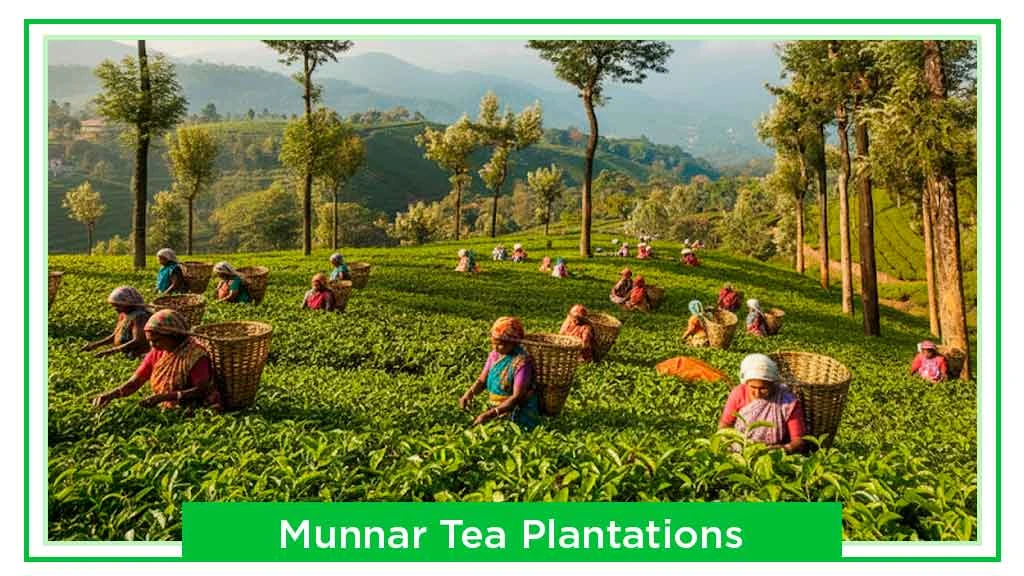
Munnar is a hill station on the Western Ghats in Kerala. It is a place known for its beautiful tea estates and tea cultivation. There are more than 50 tea estates in and around Munnar covering an area of 3000 hectares. Some famous tea estates of Munnar region are Kannan Devan Hills Plantation, Kolukkumalai Tea Estate and Lockhart Tea Estate. Green tea, white tea and black tea are the popular tea varieties produced in Mannar region. Munnar is undoubtedly one of the most picturesque tourist destinations in India.
Kangra, Himachal Pradesh
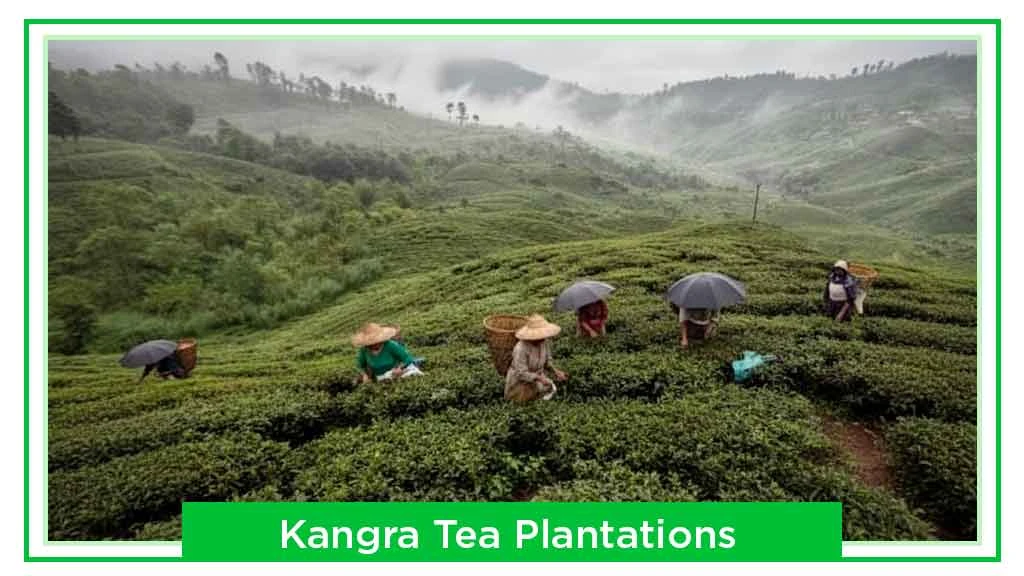
Kangra valley is in Himachal Pradesh which has a beautiful view of tea estates which are set against the backdrop of the majestic Dhauladhar Range, providing stunning views and a serene atmosphere. This is India’s smallest tea region known for the green and black tea varieties. The Kangra tea has a unique aroma and tinge of fruity flavour. It is milder than Darjeeling tea in terms of flavour. Teas are grown at elevations ranging from 900 to 1400 metre above sea level. It also has a registered Geographical Indication (GI) tag. Visitors can explore the lush tea plantations, tea-making processes, and the tea-plucking here.
Which are the Top Tea Producing States in India?
According to the Tea Board of India, the top tea producing states in the FY24 were:
|
States |
Production in 2024 (in million kilograms) |
|
Assam |
649.84 |
|
West Bengal |
373.48 |
|
Tamil Nadu |
163.92 |
|
Kerala |
58.38 |
|
Karnataka |
4.50 |
What are the Government Initiatives to Support Tea Production in India?
The Indian Government has launched a Tea Development and Promotion Scheme to promote tea production in India. This scheme was launched in November 2021 by the Tea Board of India for 2021-26. This scheme aims to enhance the productivity and quality of tea production in India. The government is helping farmers by providing the following benefits in terms of financial assistance -
- The government is providing subsidies for equipment such as a pruning machine, mechanical harvester, brush cutter, etc., @ 25% of the actual cost of the equipment.
- To obtain organic certification or renew the certification, the government is providing 50% of the cost of the accreditation empanelled by the tea board/APEDA under the National Program for Organic Production (NPOP).
- To set up a factory, the government assists by FPO at 40% of the actual cost with a ceiling limit of Rs. 2 crores/factory.
There are seven essential components to this scheme:
- Plantation development of small tea farmers
- Worker's welfare
- Creation of sector-specific action plan for North East India
- Research and development activities
- Supporting the tea producers and traders in market promotion activities
- Regulatory reforms
- Establishment expenses
In conclusion, India’s tea industry is paramount in promoting agricultural diversity and cultural heritage. States like West Bengal, Assam and Tamil Nadu contribute unique flavours and characteristics to the vast array of Indian teas. The government is giving subsidies to farmers for equipment such as pruning machines, mechanical harvesters, brush cutters, etc. Farmers are getting more employed and earning additional income through tea plantations in India.
Frequently Asked Questions On Tea Plantations in India
1. Is tea plantation profitable?
Yes, tea plantations have a benefit to cost ratio in the range of 1.2 to 2.2.
2. Which soil is most suited for tea plantation?
The tea plantation is done best in deep and fertile, well-drained laterite soil.
3. Why are hillslopes best suited for tea plantations?
Hillslopes are best suited for tea plantations as they have proper drainage facilities and prevent water from logging.
4. Are green tea plantations the same as regular tea?
Yes, both green tea and regular tea are made from Camellia sinensis plant. They just differ in terms of their processing. Like, black tea is oxidized, and the green tea is not oxidized.
5. Where are tea plantations found in India?
Assam, Tamil Nadu, West Bengal, and Kerala are India's largest tea-producing states. Along with this, other states also produce tea, but not in vast quantities.
6. Which state is the largest producer of tea in India?
Assam is the largest producer of tea in India.


Related Blogs
